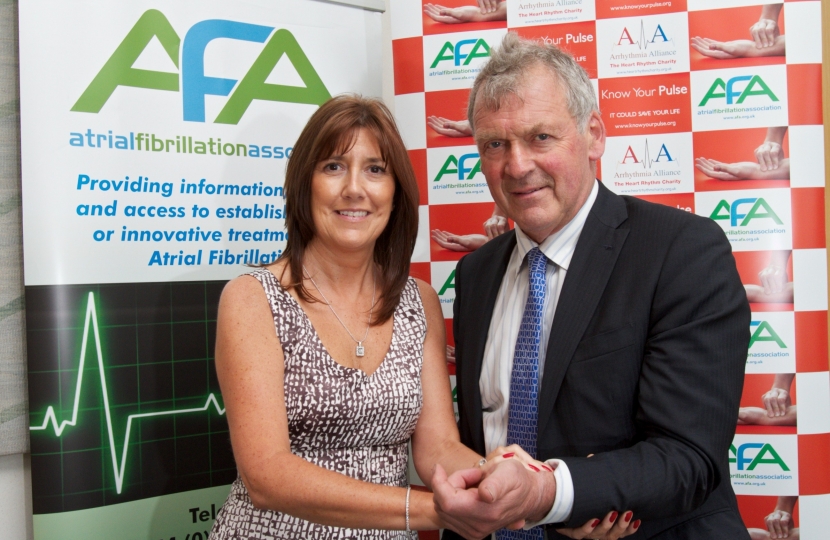
Glyn Davies, MP for Montgomeryshire, has this week convened a meeting with leading clinicians in Parliament to showcase innovative practice across England and Wales in the management of Atrial Fibrillation (AF).
The meeting of the All-Party Parliamentary Group on AF saw local MP and Chair of the Group Glyn Davies launch the publication of a booklet by the Atrial Fibrillation Association (AFA) Healthcare Pioneers: Showcasing innovative practice in AF. The booklet is designed to promote successful schemes on how to diagnose and manage AF across England and Wales.
AF is the most common heart rhythm disorder in the UK and it affects more than 51,000 people across Wales. Experts suggest, however, that up to half of all AF patients have not yet been detected.
Among many damaging and debilitating consequences, AF increases an individual’s risk of suffering a stroke by five times. This effect alone results in considerable disability and death not to mention avoidable millions in healthcare expenditure that NHS Wales cannot afford. It is therefore hoped that by showcasing projects that have helped increase the number of patients diagnosed with AF or helped patients manage their condition, it will in turn reduce the incidence rate of strokes.
Following the meeting Glyn Davies said:
“I am backing Healthcare Pioneers, the aim of which is to share ideas within the NHS. This report is great for healthcare commissioners it is based on case studies of clinicians who are leading the way in diagnosing more people with AF by providing pulse checks at local flu clinics, promoting AF in community pharmacies and even raising awareness amongst 999 callers who were not admitted to hospital.
“It’s particularly important to establish a one-stop shop AF clinics which can work without additional funding in areas where AF is significantly higher than the national average”
“I hope that clinicians across the UK take inspiration from some of the schemes featured in the booklet. If commissioners judge schemes to right for them, and are implemented on a wider scale, they could deliver large health benefits to patients and efficiency savings to the NHS.”
